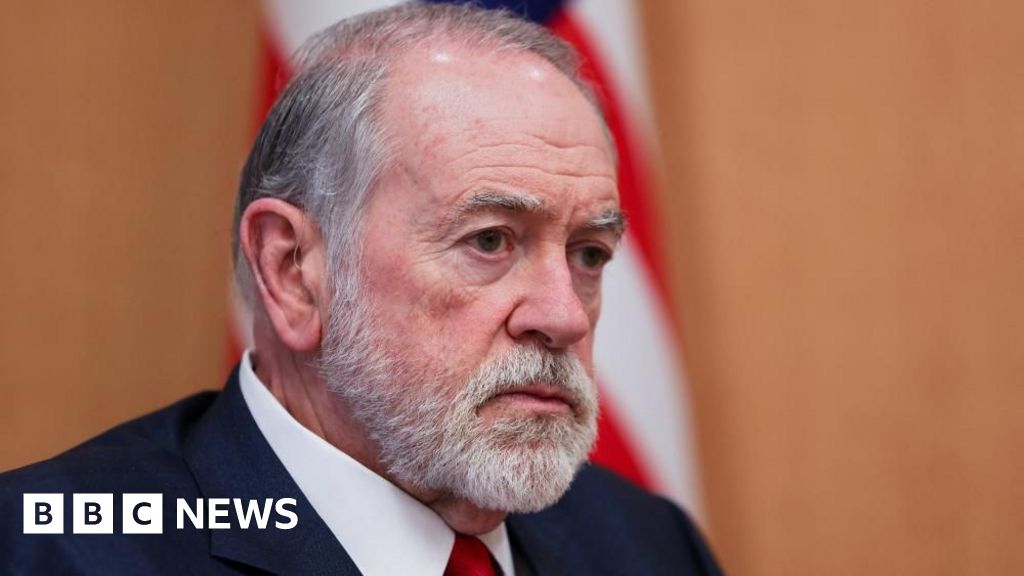Israel's Knesset Advances Controversial Annexation Bill Amid Global Condemnation

Israel’s Parliament Advances Controversial Annexation Bill
In a narrow 25-24 vote, Israel’s Knesset passed the first reading of a bill aiming to annex parts of the occupied West Bank, marking a significant step in a deeply divisive political process. The bill faces three more votes before it can become law, indicating ongoing uncertainty and debate within Israeli politics.
Political Opposition and International Reaction
Notably, Prime Minister Benjamin Netanyahu opposed the bill, describing it as a political ploy by the opposition to create division. This move highlights fractures within Israel’s leadership. Internationally, the proposed annexation is widely condemned, with U.S. officials warning it could derail peace efforts and violate international law.
Implications for the Region
If enacted, the annexation would formalize Israeli control over settlements and territory long disputed, potentially escalating tensions with Palestinians and neighboring countries. The legislation is seen by critics as undermining prospects for a two-state solution and threatening regional stability.
About the People Mentioned
Benjamin Netanyahu
Benjamin Netanyahu, born on October 21, 1949, in Tel Aviv, Israel, is a prominent Israeli politician and diplomat who has served as Prime Minister of Israel three times (1996–1999, 2009–2021, and from 2022 onwards). He began his career in the Israeli military's special operations and later transitioned into politics in the late 1980s, joining the Likud party[1][2]. Netanyahu first became prime minister in 1996, during which time he signed the Hebron and Wye Accords, advancing peace efforts with the Palestinians. His administration focused on economic reforms such as government privatization, liberalizing currency regulations, and reducing deficits. After losing the 1999 election, he served as foreign minister and finance minister before reclaiming the Likud leadership in 2005[1][3][4]. Returning as prime minister in 2009, Netanyahu formed a national unity government and proposed a demilitarized Palestinian state recognizing Israel as the Jewish state, emphasizing security concerns. His tenure was marked by fluctuating peace negotiations with the Palestinians and contentious policies including settlement expansions. He also maintained a hawkish stance on Iran and supported the Iraq war[1][3][5]. In 2022, Netanyahu made a political comeback as prime minister, leading a coalition that included far-right parties. His leadership during this period has been pivotal amid the 2023–2024 Israel-Hamas conflict, with significant domestic and international implications[2]. Netanyahu is Israel’s longest-serving prime minister and remains a central figure in Israeli politics, known for his strong security policies, economic reforms, and complex role in the Israeli-Palestinian conflict. His career has been marked by both political resilience and controversy, reflecting his enduring influence on Israel’s domestic and foreign affairs[2][3][5].
About the Organizations Mentioned
Knesset
The **Knesset** is the unicameral national legislature of Israel, serving as the supreme legislative authority of the state. It is composed of **120 members** elected every four years through a proportional representation system, where the entire country functions as a single electoral district. This system allows even small political parties to gain representation, making coalition governments a typical feature of Israeli politics[1][2]. Established in 1949 as the successor to the Constituent Assembly that ratified Israel's Transition Law, the Knesset is located in Jerusalem. It has no formal written constitution but operates under a series of Basic Laws that function as constitutional principles, including laws on the Knesset itself, the presidency, and government structure[2][4]. The Knesset's primary functions include **passing all laws, electing the president and prime minister, approving the cabinet, supervising government actions, and appointing key officials** such as the state comptroller. It exercises oversight through standing committees—12 in total—that scrutinize legislation and government performance in areas such as finance, defense, education, and justice. These committees hold hearings, call ministers for explanations, and shape legislation before it is voted on in the plenary[1][4][5]. Notably, the Knesset has the power to dissolve itself or the government via a constructive vote of no confidence, ensuring a dynamic balance between legislative and executive branches. The government, headed by the prime minister, generally controls the Knesset through coalition majorities, reflecting a parliamentary system where legislative and executive powers are closely linked[3]. Key historical achievements include Israel's early legislative formation, establishment of democratic governance, and continuous adaptation of laws in a complex, pluralistic society. Its evolving role reflects Israel’s political diversity and the challenges of maintaining stable governance amid multiple parties and societal divisions[2][4]. For business and technology observers, the Knesset shapes the regulatory environment affecting innovation, economic policy, and international relations
United States
The **United States** is a federal republic and a global superpower, playing a leading role in economics, military strength, technology, and governance. It is a nation of approximately 348 million people as of 2025, characterized by its diverse population and dynamic economy[8][6]. Founded in 1776 following independence from British rule, the U.S. rapidly evolved into a major world power, especially after World War II, when its technological and economic investments solidified its global dominance[4]. Today, it remains the world’s preeminent military power, with 76% of Americans recognizing this status, while about half view it as the leading economic power globally, though China is seen as a rising competitor[2][3]. The U.S. government operates through a complex system that manages federal finances, taxation, social welfare programs, and trade policies. Recent legislative changes, such as the 2017 Tax Cuts and Jobs Act and the 2025 One Big Beautiful Bill Act, have shaped the tax landscape to influence economic growth, labor markets, and federal revenue[1]. Despite challenges like rising federal deficits projected to reach 6.9% of GDP by 2027, consumer spending remains resilient, and business investment is expected to grow steadily in 2025[5]. In governance, the U.S. is rated "Free" with a score of 84/100 by Freedom House, though concerns about democratic erosion and partisan conflicts persist[6]. Public trust and satisfaction with government services fluctuate, reflecting ongoing debates about policy effectiveness and institutional competence[7]. Technologically, the U.S. maintains a critical edge, underpinning its economic and geopolitical power. Experts warn, however, that technological dominance is not guaranteed indefinitely, emphasizing the need for adaptive policies and international cooperation to sustain leadership in innovation and global affairs[4]. Overall, the United States remains a pivotal force in global business, technology, and politics, balancing historic strengths with contemporary challenges in


















